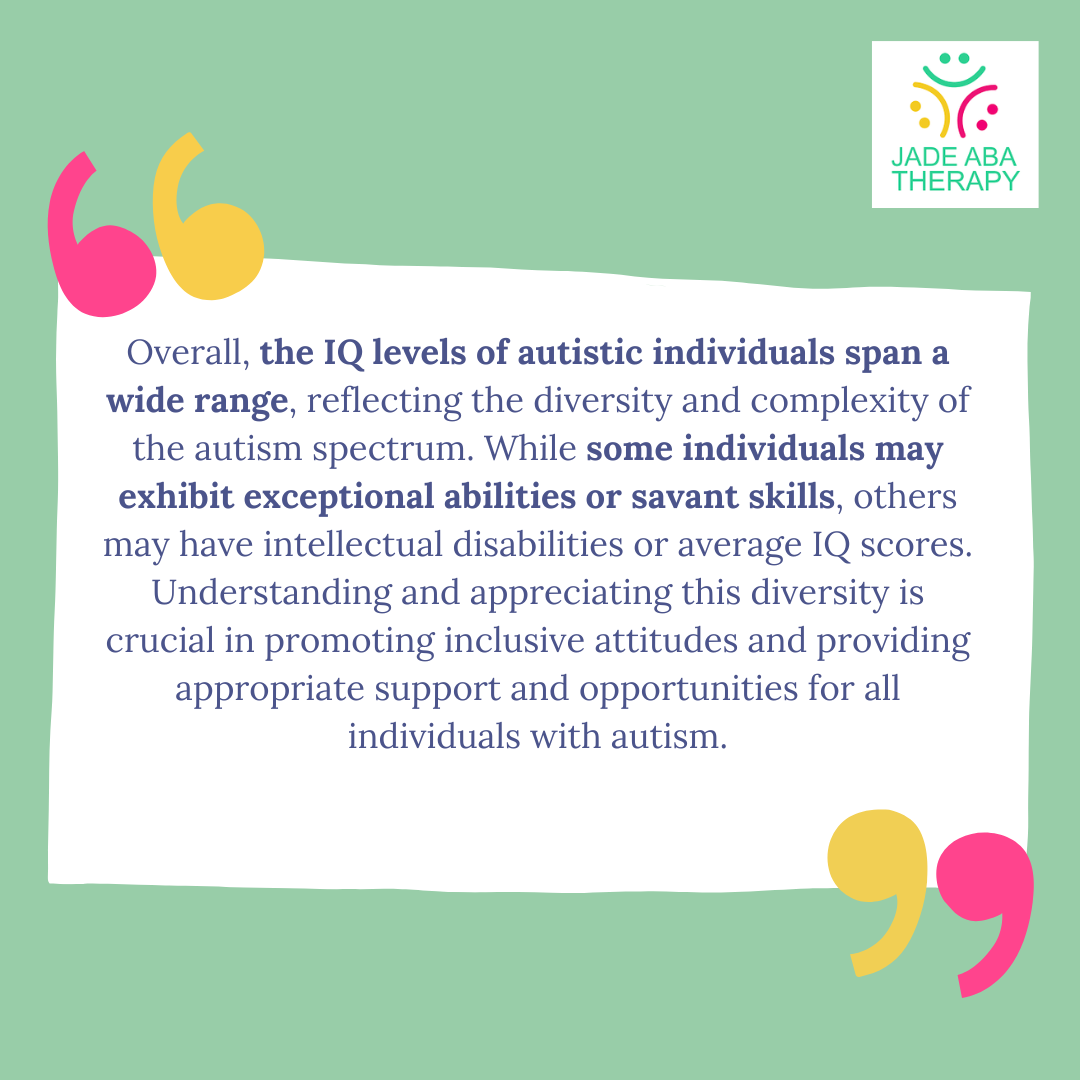One common stereotype about autism is the assumption that all autistic people are exceptionally intelligent or possess a high IQ. This perception stems from portrayals in media and anecdotes of individuals with remarkable abilities in specific areas, such as mathematics or music. However, the reality is far more nuanced and diverse.
Explore top insights and solutions by choosing the best ABA therapy in Maryland for autistic people at the IQ level.

IQ Distribution Among Autistic Individuals
According to research, IQ levels among autistic individuals vary significantly, much like in the general population. While some individuals with autism may have intellectual disabilities and lower IQ scores, others may have average or above-average intelligence.
According to a study, about 30% of individuals with autism have an intellectual disability, often indicated by an IQ below 70.
One of the reasons for the perception of high intelligence in autism is the occurrence of savant syndrome. Savant syndrome is characterized by extraordinary skills or abilities in specific areas, such as memory, mathematics, art, or music. It is estimated that approximately 10% of autistic individuals exhibit some form of savant skills. These skills can coexist with varying levels of cognitive functioning, highlighting the complex interplay between different cognitive domains in autism.
Autism is also associated with unique cognitive profiles and strengths. Many individuals with autism demonstrate strengths in visual thinking, attention to detail, and pattern recognition. These cognitive abilities can contribute to success in specialized fields such as engineering, technology, and the arts.
However, these strengths do not necessarily correlate with a high IQ in all cases.

Challenges in IQ Assessment
Assessing IQ in individuals with autism presents challenges due to their diverse cognitive profiles and communication difficulties. Traditional IQ tests may not always capture the full range of abilities and potential of autistic individuals. Some researchers argue for the development of alternative assessment methods that take into account the unique cognitive strengths and challenges associated with autism.
Educational and employment outcomes for autistic individuals vary widely. While some autistic individuals may excel academically and pursue advanced degrees or successful careers, others may face significant challenges in academic settings or finding suitable employment.
Supportive educational environments, vocational training, and accommodations in the workplace are critical in facilitating success for individuals with autism across the IQ spectrum.
Neurodiversity Perspective
A growing perspective within the autism community is that of neurodiversity, which emphasizes the natural variation in human brains and rejects the pathologization of neurological differences.
From this viewpoint, individuals with autism are valued for their unique ways of thinking and processing information, regardless of their IQ scores or specific abilities. Advocates of neurodiversity argue for societal acceptance and accommodation of autistic individuals based on their individual needs and strengths.
Support and Interventions
Effective support and interventions for individuals with autism should be tailored to their specific strengths and challenges. Early intervention programs, behavioral therapies, and educational strategies that focus on building on strengths while addressing difficulties can significantly improve outcomes for autistic individuals.
Additionally, promoting inclusive environments that embrace neurodiversity and provide opportunities for meaningful participation and contribution is crucial.
Future Directions in Research
Future research in autism should continue to explore the factors influencing cognitive development and functioning across the lifespan. Longitudinal studies tracking cognitive trajectories in autistic individuals could provide valuable insights into the variability and stability of cognitive abilities over time.
Moreover, investigating the effectiveness of personalized interventions and educational approaches tailored to individual cognitive profiles is essential for optimizing outcomes.

Research continues to shed light on the cognitive strengths and challenges associated with autism, emphasizing the importance of personalized support and recognition of individual potential. Embracing neurodiversity and advocating for inclusive practices are essential steps toward creating a more supportive and accepting environment for autistic individuals worldwide.
To learn more about how Jade ABA Therapy can help, feel free to contact us today and explore the best solutions for your loved one.




